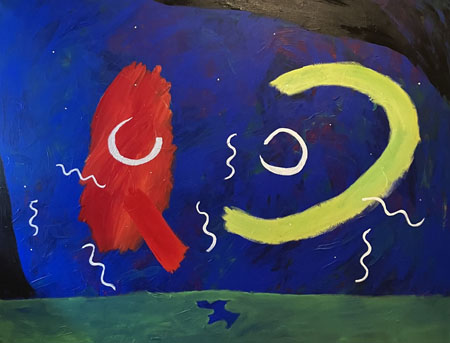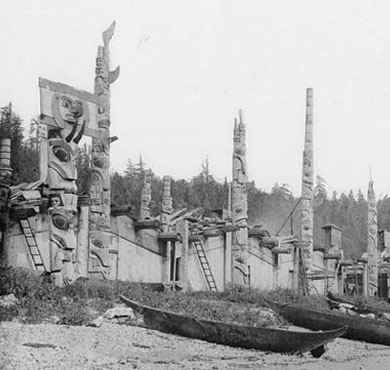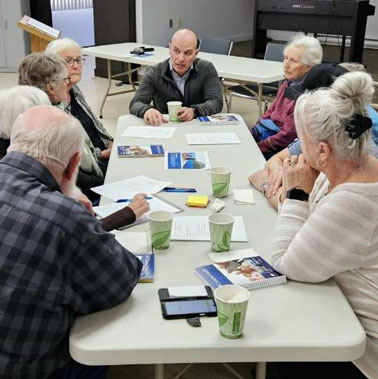Reconciliation and Land Act in BC on Canada’s Pacific Coast (and BC election this coming October 19)
Mar 1st, 2024 | By Randall White | Category: In BriefNORTH AMERICAN NOTEBOOK. RANDALL WHITE, FERNWOOD PARK, TORONTO . FRIDAY, MARCH 1, 2024. I recently found two articles from The Tyee on the current state of government and politics in Canada’s Pacific Province unusually intriguing.
The opinion polling still seems to be suggesting that David Eby’s high-flying New Democrats will probably win a second majority government in the BC provincial election to be held on or before October 19, 2024. (Although see also this recent Polling Canada note!)
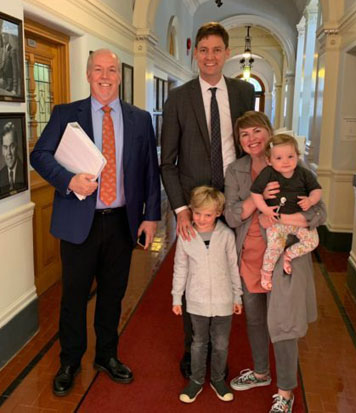
I nonetheless finished reading my two Tyee articles with at least some slight sense that there was one issue over which the Eby government has lately been having some trouble. And this could spread at least a minor cloud over the election this fall.
The first article appeared on February 21, 2024, and is headlined “Throne Speech Looks Ahead to October Election … NDP promises action on affordability, health care and reconciliation.”
The second article, from February 22, bears the headline ”NDP Hits Brakes on Land Act Reconciliation Plan … Opposition forces government to relaunch consultations; Cullen blames misinformation.”
The second article elaborates on problems with the third of the three main issues on which the BC New Democrat government, in office sine 2017, is apparently seeking to be re-elected on this coming October 19 (according to its recent Throne Speech). A few quotations from the article suggest the thickening plot.
Quotations from “NDP Hits Brakes on Land Act Reconciliation Plan”
To start with : “Facing public backlash encouraged by opposition parties, the BC government has cancelled planned changes to the Land Act, Minister of Water, Land and Resource Stewardship Nathan Cullen said Wednesday.”
Carrying on :“While the government said the changes were necessary to allow it to enter into land-use agreements with First Nations, opponents accused it of planning to quietly pass control over the vast majority of the land base to First Nations.”
As noted, former federal NDP MP Nathan Cullen, now a BC provincial cabinet minister (currently in charge of land, water, and resource “stewardship” as the environmentalist NDP puts it), blamed opposition politicians for stirring up misinformed populist antagonism to the planned changes to the Land Act — changes based on extensive consultation with BC First Nations leaders.
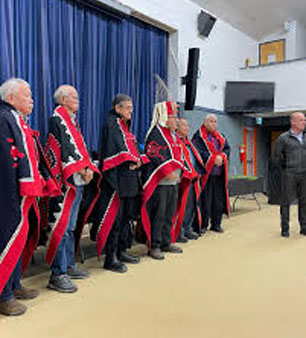
The Tyee article carries on again : “ … said Cullen … ‘The dog whistle politics was abhorrent, and I hope it stops’ …. though he acknowledged that the government’s poor communications about the changes had left room for the opposition to sow distrust … [said Cullen again] ‘I hope this gives us the peace and the calm that is required to have these important conversations with British Columbians.’”
Meanwhile, the BC Conservative MLA John Rustad “said the government is ultimately responsible for land-use decisions and that joint decision-making is a step too far … ‘The government of British Columbia is responsible for making sure that decisions are made on the land base for all British Columbians, taking all British Columbians’ interests into consideration,’ Rustad said. ‘When that decision-making is made jointly with First Nations, what you’re talking about is First Nations making decisions that are in the interest of the First Nations, not for all people in the province’.”
One key subject and two important deep background features
So David Eby’s NDP government will be having some important conversations with British Columbians on proposed Land Act changes between now and the October 19 election.
One key subject, it might be guessed, is just what the concept of “decision-making … made jointly with First Nations” on just what decisions about land use in the province may or may not mean. (And/or even whether the concept of joint decision-making is at all an apt description of the government’s now cancelled plans.)
Without at all wanting to indulge in the dog whistles alluded to by the Hon. Nathan Cullen, it doesn’t take a PhD in political science to appreciate that many non-First Nations BC residents are bound to wonder just what the Eby government’s proposed pro-First Nations Land Act changes are all about.
By focusing its case for re-election in October on “affordability, health care and reconciliation” the Eby government is almost inviting questions of this sort. (And that could finally be an almost excellent thing.)
Meanwhile again, two important deep background features are worth underlining :
First, Indigenous peoples made up some 70% of the BC population when the old British colony joined the new Canadian confederation in 1871.
Especially on the Pacific coast some strong First Nations cultures still seem to remember life as dominant communities in the region.
Today there may also be more mainstream political activists with Indigenous backgrounds in BC than elsewhere in Canada. (Former federal attorney general Jody Wilson-Raybould is just one case in point.)
Second, historically there have been virtually no First Nations Treaties with what is now the (constitutionally most obviously responsible) federal Government of Canada in the most westerly Pacific province of BC, as there have been elsewhere in the country and especially in Ontario and the three Prairie provinces.
Today in BC : “Many First Nations communities are currently in the process of negotiating treaties with the provincial government. These treaties address issues such as Indigenous rights, self-government and use of land and resources.”
Important conversations with all British Columbians on Indigenous issues lie ahead
My own view is that in the end the important conversations with British Columbians on proposed Land Act changes that the NDP government will be having over the next while will, whatever else, finally be a good thing for the people of British Columbia — and even the people of Canada at large.
Meanwhile yet again, it is also impossible not to wonder about the impact of reconciliation and the proposed Land Act changes on the October 19, 2024 BC election — dog whistles and (hopefully) beyond.
No doubt the Eby government and Minister of Resource Stewardship Nathan Cullen have, for the time being (and quite sensibly), cancelled any immediate Land Act changes partly with such very narrowly political thoughts in mind.
Meanwhile one very last time, the important conversations with British Columbians about First Nations and the Land Act in which Nathan Cullen and perhaps even Premier Eby will have some role are admirably reaching for the stars in Canada’s present-day “free and democratic society” as well.
And this is still happening in a real world where even democratic politics remains a blood sport (even in Canada, to say nothing of BC), as some like to stress.
Or as a great historical observer of the sunset of the global British empire is said to have said : “Politics is almost as exciting as war, and much more dangerous. In war you can only be killed once.”
Here I can only conclude with a vague wondering about any possible slight impact the October 19, 2024 BC election might have on at least a handful of voters in the much larger and more profoundly fateful November 5, 2024 election in the USA, USA, USA … next door ??
